'It's like waking up in your own nightmare every day'
The pandemic from inside prison
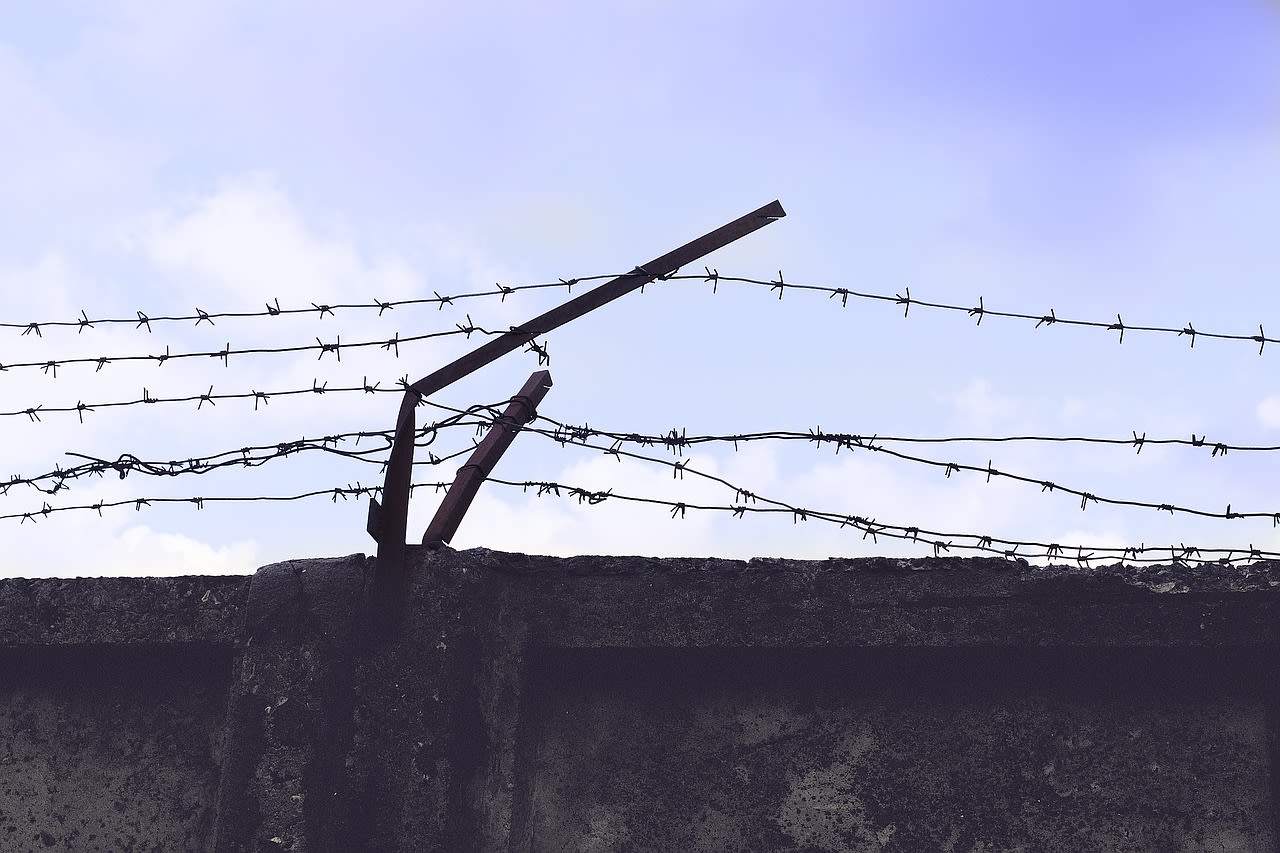
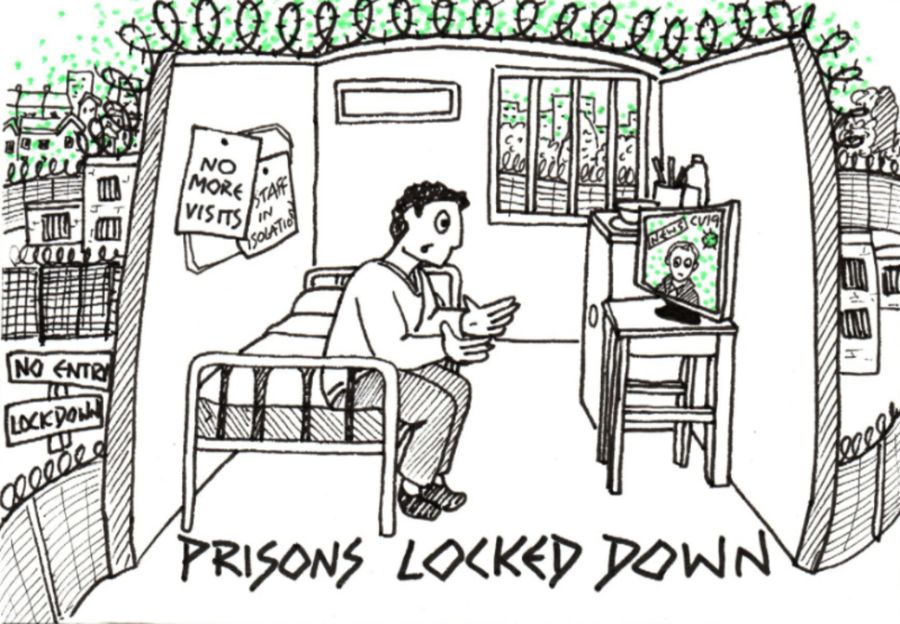
As the country continues to face harsh restrictions in the pandemic, those inside prisons are living an even more isolated reality.
With 23 hours-a-day confinement to cells and face-to-face visits suspended for most of the past 10 months, the long-term impact of restrictions on the mental health of prisoners remains unknown.
SWL spoke to Robbie, who is currently serving time, about his experience of having coronavirus in prison and life on the inside during the pandemic.
Robbie's story
Robbie is currently in a UK prison for drug-related crimes and has experienced life inside both before and during the pandemic. Having caught coronavirus himself, he describes the impact of restrictions on prison life.
He said: “Put it this way, if you end up living on this side of the fence right now it’s like living in hell every single day. It’s bleak and it’s just almost like waking up in your own nightmare every day. We’ve committed crimes fair enough and we’ve got sentences for it so we have to take that on the chin, but this pandemic was not part of it.
“Some days I wake up and I don’t even know what day it is. Sometimes you try to sleep away the days but then your sleeping pattern becomes a mess. Obviously the whole world is on lockdown, but it’s almost like prisons have been forgotten about."
Robbie spends 23.5 hours a day confined to his cell and explained that the 30 minute time slot for prisoners to get out is to exercise, shower and call loved ones. In the absence of the gym, he tries to exercise in his cell every day, doing burpees and press-ups to stimulate his mind.
“Since the pandemic it’s behind your doors. You come out for about half an hour a day and that’s it. Say if you’ve got a phone call with your solicitors or family, you have to make the choice whether you’re going to have a shower, have fresh air or that phone call,” he said.
Robbie added that those who don’t have showers in their cells wash in their sinks after exercising.
He said: “I’ve got everything I need but my experience is different to other people’s. There are some that are really suffering in here and they tell me it’s putting strains on their relationships. In regards to my cell I can’t complain, as far as prison goes I’ve got it alright.”
Earlier in the pandemic Robbie got coronavirus.
After waking up one morning feeling faint and flustered he got tested and a week later the positive result came back and so his entire wing went on a 10-day lockdown. Whilst prison staff checked on him and brought him food, he felt that there was no consideration for his mental well being.
He said: “I didn’t come out of my cell for 10 whole days solid. I didn’t see the light of day. They didn’t come to check on my well being for 10 days, nothing at all. Obviously when they came and brought my food they asked if I was alright and I’d say yeah, then in the morning they basically came to check that I was still alive.”
Robbie last saw his young daughter and partner in the summer when some socially distanced visits were permitted. He added that the restrictions are putting strains on relationships between those inside and outside.
He said: “When my little girl visited she couldn’t understand, she was saying ‘Daddy why can’t I hug you’ and I said it’s because of the coronavirus. It's horrible having my little girl and partner sat in front of me and I can’t hug them, it’s heartbreaking. Like I said I’m doing my time but this wasn’t part of it. My view is not the same as everyone else's. It is what it is and I just hope it’s not forever.”
Whilst prisons have provided a range of alternative in-cell activities, dubbed ‘distraction packs’, Robbie is concerned about increasing self-harm rates. He described them as 'through the roof' and worries about the impact of prolonged solitary confinement and lack of rehabilitation on the long-term mental health of prisoners.
A number of prison charities have also noted the significant drop in rehabilitation programmes.
The Prison Reform Trust has vocalised its concerns and warns that some prisoners will serve longer sentences as they’re unable to prove behavioural progress to the Parole Board.
Robbie added that overall his prison has done well to enforce social distancing measures and mask wearing is required outside cells. He hopes that prisoners are given more time to exercise outside, as gyms provided a crucial space for mental and physical well being.
“It’s a sticky situation because you’ve got to fight the balance. I know there’s a pandemic out there and so I do understand why they’ve got to have restrictions.
“But as far as I’m concerned they just banged everyone behind their doors, put their head in the sand and hoped for the best. That's what I personally think”, he said.
*his name was changed for the purpose of this article
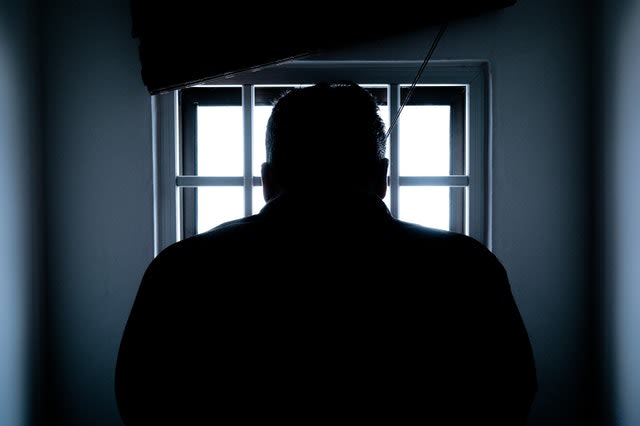

Last March a widespread lockdown was enforced across prisons in England and Wales.
In line with government guidelines, prison regimes dramatically changed as social distancing and other measures were introduced.
Communal spaces like gyms were closed and many rehabilitation programmes ground to a halt.
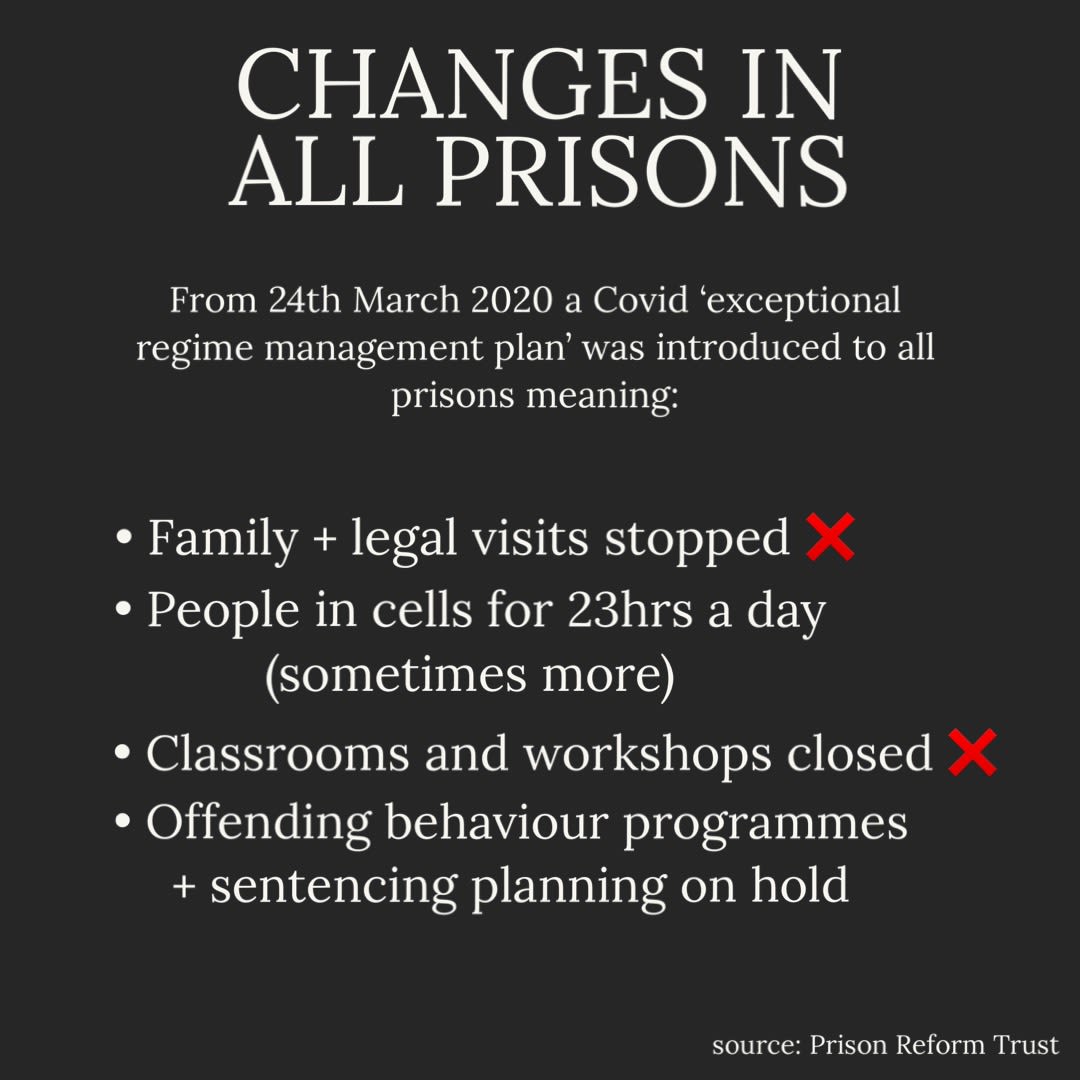
With a UK prison population of 78,000, according to the Ministry of Justice’s November figures, thousands of others are facing extreme degrees of social isolation like Robbie.
Between March and November 2020, 37 prisoners died due to suspected or confirmed cases of Covid-19 in prison, HMPPS statistics show. An additional 10 deaths were recorded due to other causes, although those individuals had tested positive for Covid too.
Solitary confinement
Whilst measures in some prisons were relaxed during the summer enabling more time out of cells and limited socially-distanced visits, the new virus variants and the second wave have brought back harsh restrictions.
The Prison Reform Trust highlights particular concerns around the length of solitary confinement prisoners are subject to and how this will impact mental health in the long term.
Peter Dawson, Director of the trust, said: “The things that tend to mitigate the impact of isolation and make prison bearable almost all revolve around relationships. All of us have gotten used to restrictions in our communications but the prison experience has been just so far beyond what most of us would ever come across. It’s led to more or less a complete absence of human contact for most of everyday and no access to electronic communication, which again for lots of us has made a big difference.”
He added that whilst the prison service has done well to introduce video calls, it's more of a sticking plaster than a solution to the communication systems which still mostly relies on letters.
Psychological impact
Former Chief Psychologist at the Ministry of Justice and Professor of Forensic Psychology at Durham University, Graham Towl noted the importance of exercise for well being and commented on the psychological impacts of isolation.
He said: “Solitary confinement has long been associated with poor mental health outcomes. The importance of structured purposeful activities to maintaining positive mental health should not be underestimated.
“Just as the effects of the pandemic seem to have amplified some of the inequalities in society more widely the same looks true in prisons. Prisoners tend to come, disproportionately, from socially and economically deprived backgrounds and in addition are living in the confined and controlled environment of a prison. The lack of personal control and decision making in relation to everyday tasks may very well be detrimental to well being. Prisoners, have a markedly increased risk of death by suicide, especially within the early days of their imprisonment.”
Whilst the pandemic continues to challenge life on the outside, Robbie and thousands of other people in prison face an even more isolated reality.
All illustrations used are courtesy of Erika Flowers.
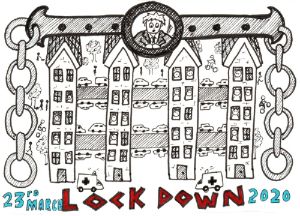
credit: Erika Flowers
credit: Erika Flowers
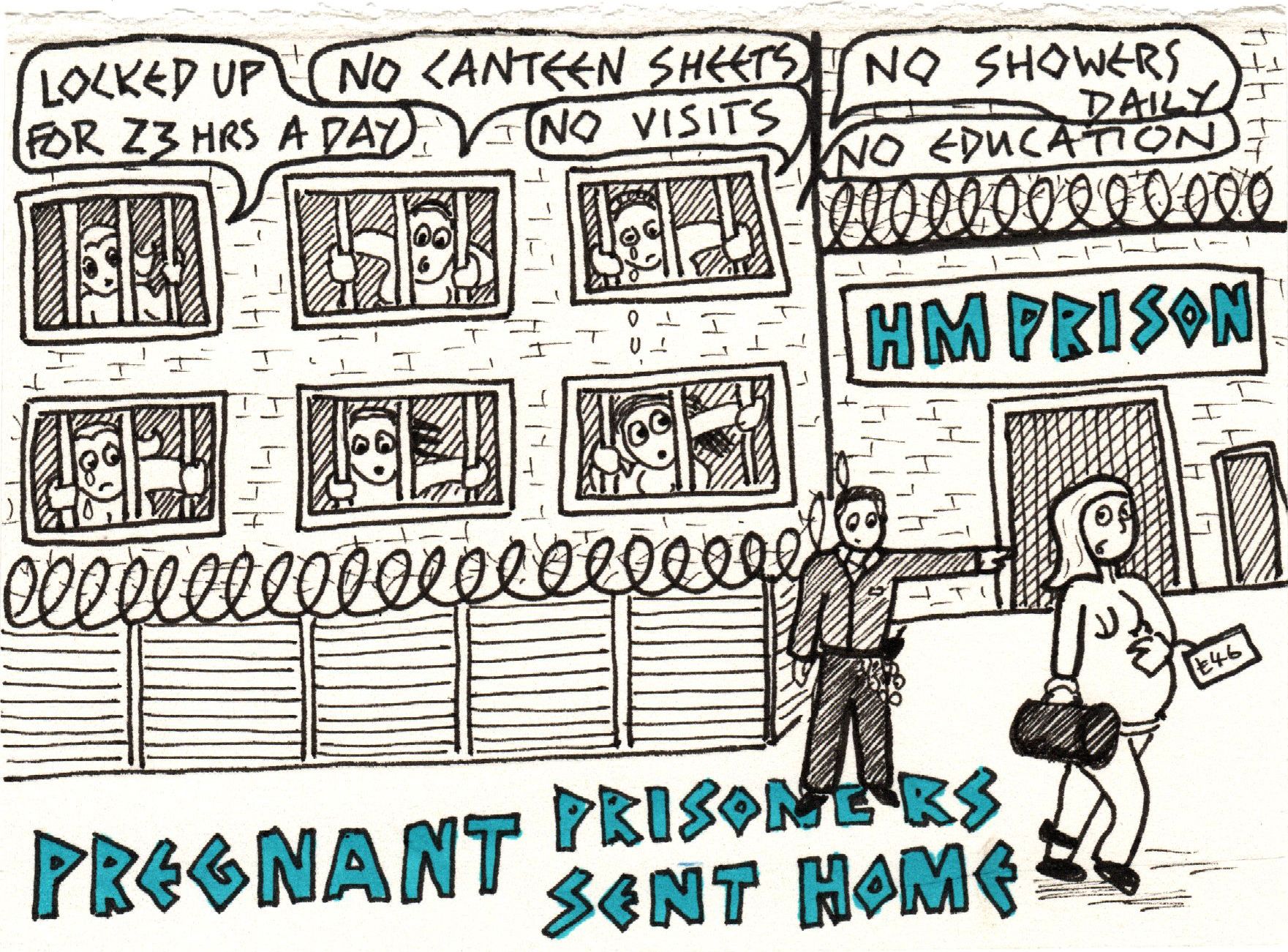
credit: Erika Flowers
credit: Erika Flowers
